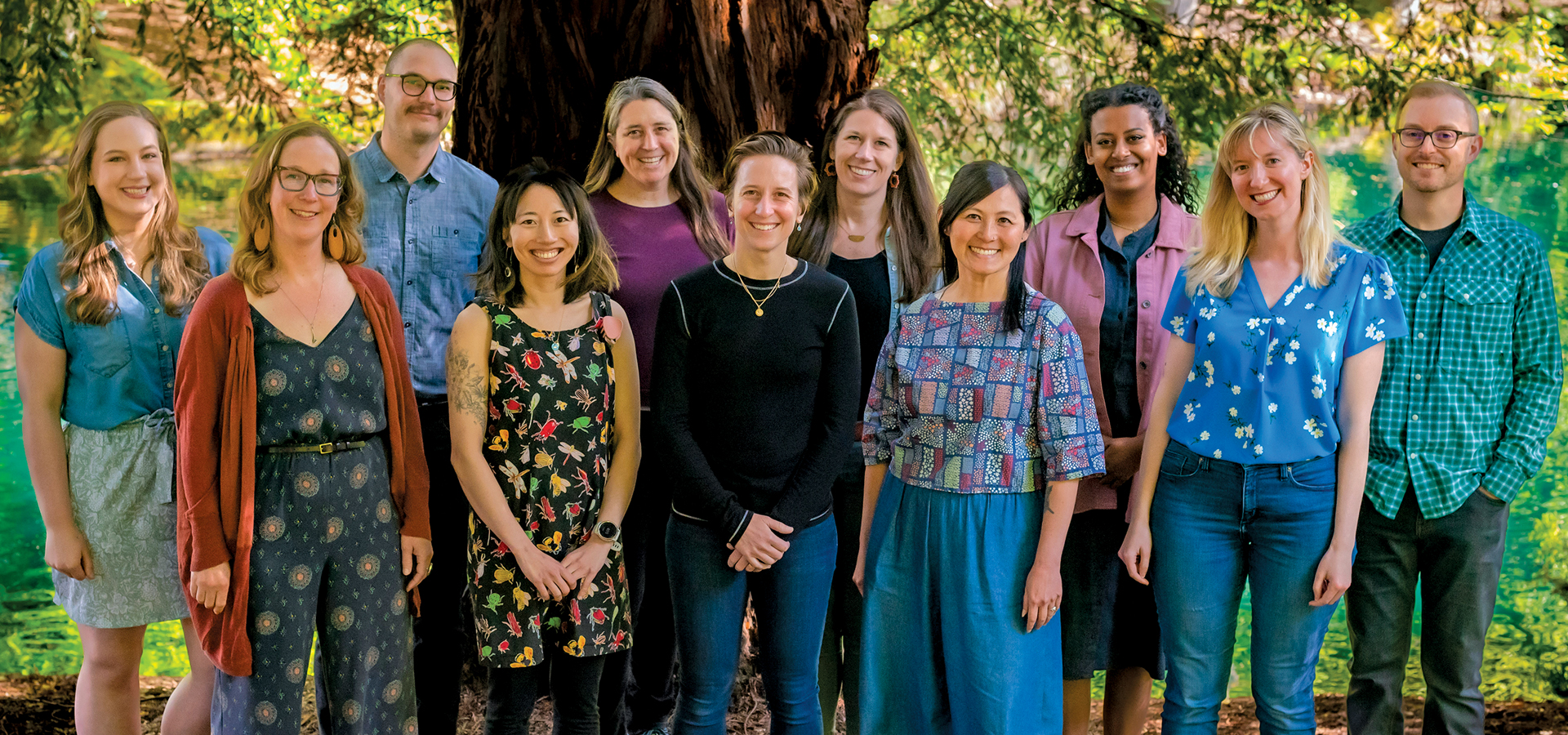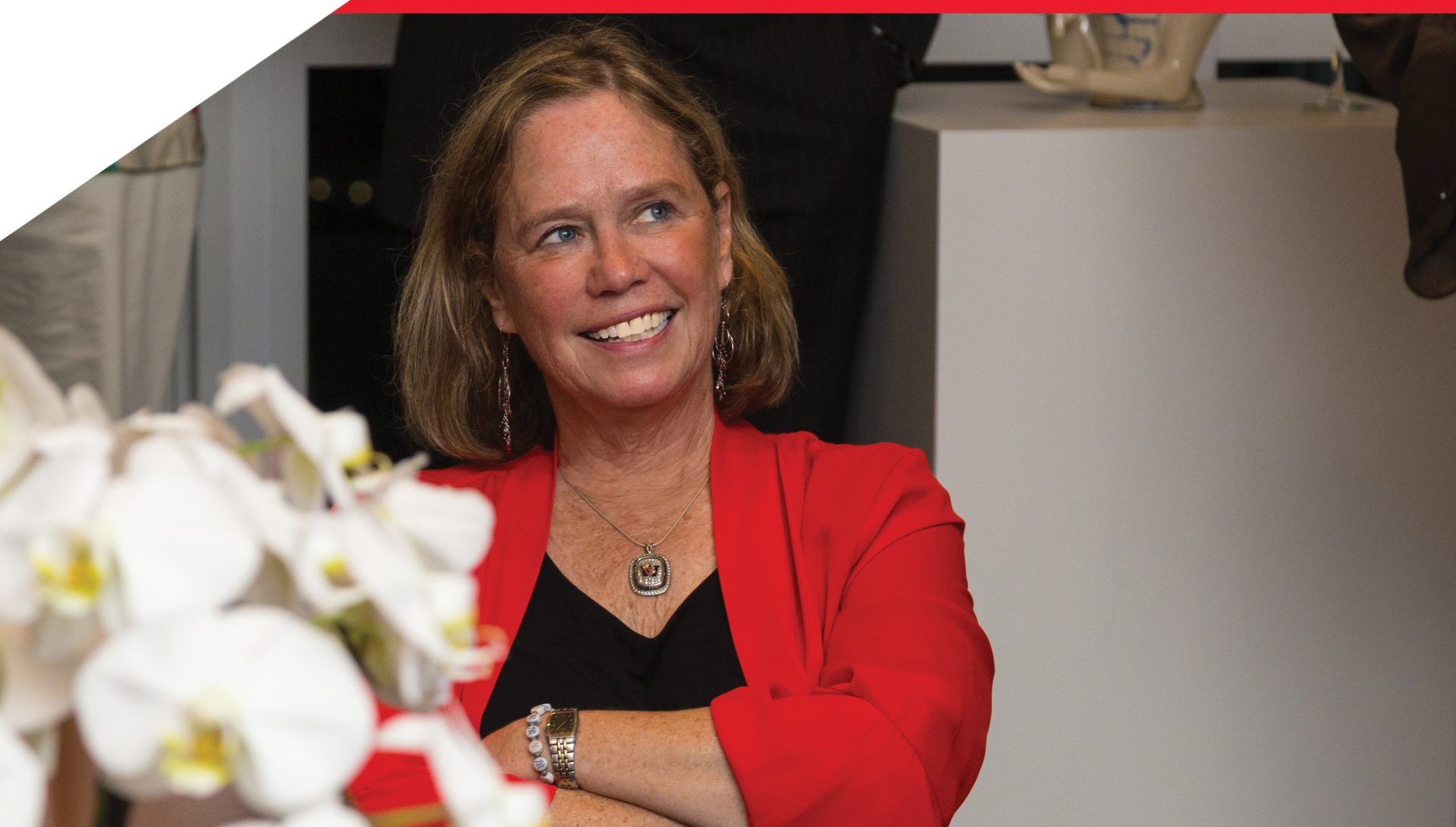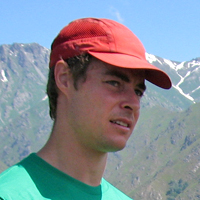“WHAT’S IN A NAME?” ALEX KELLEY ’13 AND JED RENDLEMAN ’12 SAY, A CREATIVELY EXHAUSTIVE PROCESS
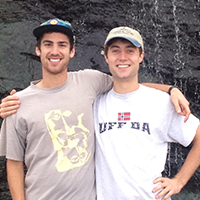
What’s in a name? Plenty of careful consideration, say Alex Kelley ’13 and Jed Rendleman ’12. The two work for Catchword, an Oakland and New York-based company that identifies potential names for products and companies. While they admit that it’s a dream come true for a liberal arts graduate, they also want to disabuse you of some of the more romanticized notions about their workday.
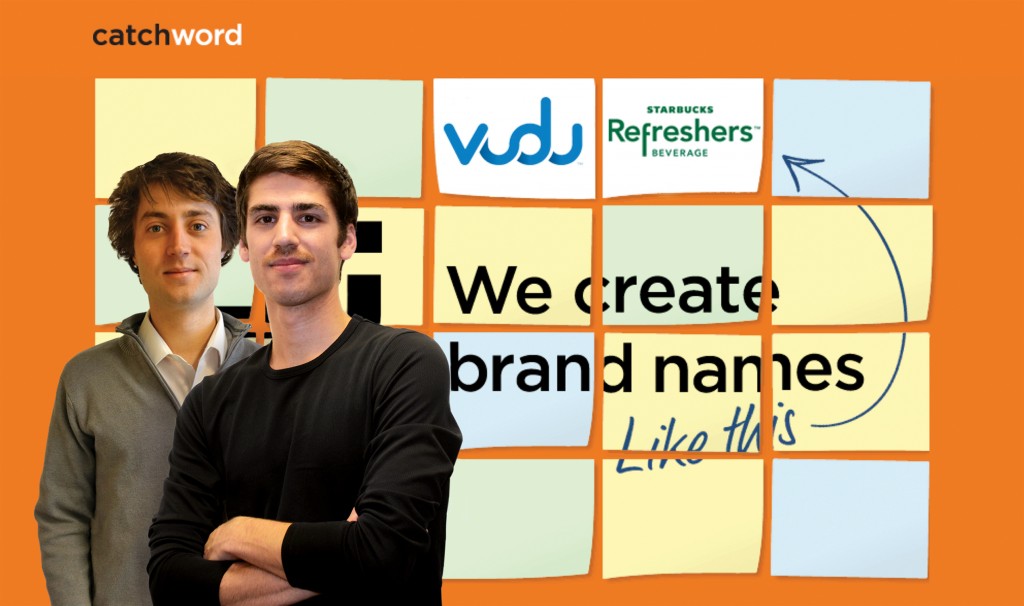
“Often people imagine our creative team sitting around a big oak table with a lot of coffee and whiskey, shouting out ideas at each other,” says Rendleman.
“While this sounds like what I do on most Friday nights, it’s not at all what the naming process looks like for us at Catchword.”
“The process in two words?” asks Kelley. “Creatively exhaustive.”
Despite their efforts to bring out the more prosaic aspects of their job, Rendleman still frames it in terms of a hero’s journey. “Like a good vision quest, naming requires one to find one’s true self, and this is always the first step of the process. We ask our clients, ‘Who are you and what business are you really in? Are you selling software or are you selling the lifestyle that your software enables your consumer to have?’”
The answer, he says, determines whether the product earns a brand name “like Autotech or like Uber.”
After that initial consultation, the team will go through several rounds of brainstorming. Kelley, who was an English major with a creative writing concentration describes it as, “Lateral thinking—thinking outside the usual channels of thought. We’re trying to be both verbally and conceptually innovative. We want to say something in a way that has never been said before.”
Both agree that the Wesleyan experience prepared them for a career requiring expertise in critical and creative thinking.
“In a normal day of naming, I might go from researching Norse mythology to subatomic particles, which is not unlike my experience at Wesleyan,” Rendleman notes. Kelley concurs: “Exposure to diverse disciplines, activities, people, and places has given me so much inspiration.”
After the brainstorming the Catchword team will winnow out the favorite names and subject this list to exhaustive screening—for trademark, Internet domain, and even linguistic issues. The latter is particularly important if a product is to move around the globe with ease: Its name must not carry unwanted cultural connotations, nor be difficult to pronounce in other tongues.
While the two were friends at Wesleyan—noted as punsters with a talent for creating unusual party themes—they arrived at Catchword via different routes. Kelley, the more recent graduate, was actually the first.
“People often ask if I was given a test during the hiring process—something along the lines of, ‘Think of 50 names for a new truck in 30 minutes,’” recalls Kelley. “That didn’t happen. Like most roles, working for a naming company is something you need to learn, and it was only through the internship that I discovered I had the skills to name.”
Kelley—and Catchword—decided that he had an aptitude for the craft when a name he suggested for an electrical engineering company made it into final consideration. “It was ‘Stormkey,’ based on the Ben Franklin myth of the lightning and key on the kite-string,“ he explains.
Rendleman was a Teach for America corps member in a high school biology classroom at the point when Kelley arrived in the Bay Area and began with Catchword. “I remember being fascinated about the fact that this company even existed,” recalls Rendleman, “and, of course, extremely envious that while he was creating names for all sorts of things, I was busy assigning detentions.”
After Rendleman fulfilled his Teach for America commitment, he, too, joined Catchword. He notes that the confidence he developed in the classroom has helped him in his work with clients. One, he recalls, wanted a name that hadn’t been used before—an obstacle that Rendleman and his co-workers had to overcome.
“Consider Explorer-the-SUV versus Explorer-the-browser, or Monster energy drinks versus Monster headphones,” Rendleman explained. “Consumers have no trouble as long as the two names aren’t in a confusingly similar space.” With both poise and patience that had been honed in front of a roomful of adolescents, Rendleman convinced the client to trust the Catchword process, assuring the client that Catchword would provide a robust list of viable names. “Confidence in your own process and talent breeds others’ confidence in you—and it was fascinating to see that lesson from Teach for America applied in a totally different context,” he says.
Although Kelley and Rendleman are not frequently on the same projects, they recall one with particular delight: a fantasy RPG game about a malevolent nanobot virus. “We got to play with some really sinister words, which you don’t get to do when you’re naming a healthcare company or a beverage,” says Rendleman. Opening the game after its release, he saw the designers had chosen one of their suggested names. “That was a really awesome feeling, to know that Alex and I had worked together to create a name that millions of people would see and talk about.”
Additionally, the two muse on their work in a larger context. Rendleman thinks of his father, a physician who worked with the homeless. He had noticed that his patients used eight discrete types of pseudonyms that, while hiding the birth name, revealed much about the individual’s motivations.
“While personal names are quite different from brand names, I do believe that all names precede their owners and evoke all sorts of emotions and associations,” says Rendleman. “Like with peoples’ names, brand names spark associations that will start to define the product from the very first moment, for better or worse.
“A good brand name identifies what you’re offering, differentiates you from your competitors, piques curiosity, makes you memorable, even inspires and motivates your employees.”
Perhaps that’s what is in a name.
—Bryan Stascavage ’18

